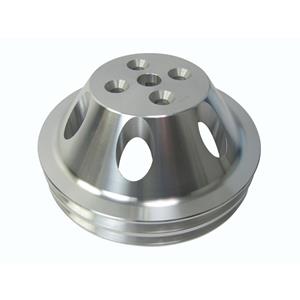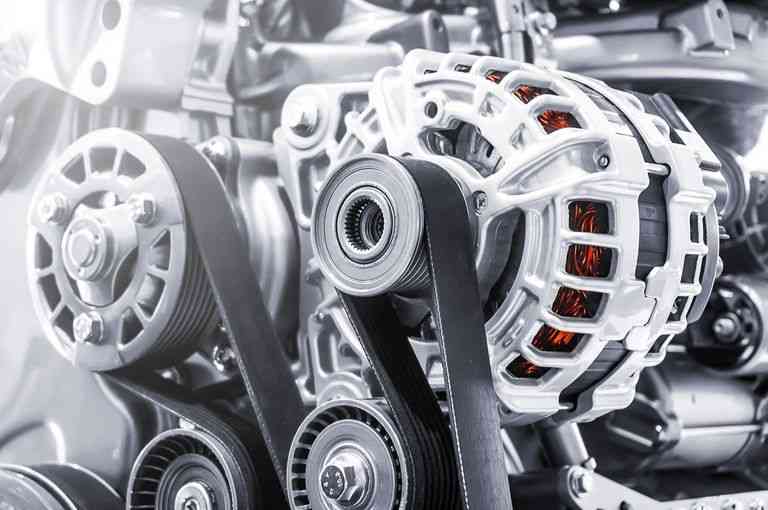Product Description
|
Our Package :
Packing & Delivery (Show As Above):
Inner Packing →Strong & waterproof plastic big is packed inside, to keep the product in safe condition.
Or as customer requests.
Outer Packing →Multilayer wooden box with strong bandages, used for standard export package.
Or customized as per customer's requirements.
Our Company
ZheJiang CHINAMFG Machinery Manufacture Co., Ltd.
--Branch of CHINAMFG Industry Ltd.
We specialize in Metal Parts Solution for Vehicle, Agriculture machine, Construction Machine, transportation equipment, Valve and Pump system etc.
With keeping manufacturing process design, quality plHangZhou, key manufacturing processes and final quality control in house.
We are mastering key competence to supply quality mechanical parts and assembly to our customers for both Chinese and Export Market .
To satisfy different mechanical and functional requirements from our customers we are making a big range of metal products for our clients on base of different blanks solutions and technologies.
These blanks solutions and technologies include processes of Iron Casting, Steel Casting, Stainless Steel Casting, Aluminum Casting and Forging.
During the early involvement of the customer's design process, we are giving professional input to our customers in terms of process feasibility, cost reduction and function approach.
You are welcome to contact us for technical enquiry and business cooperation.
FAQ:
1. Are you a manufacturer or a trading company?
We are a professional manufacturer with over 15 years' export experience for designing and producing vehicle machinery parts.
2. How can I get some samples?
If you need, we are glad to offer you samples for free, but the new clients are expected to pay the courier cost,
and the charge will be deducted from the payment for formal order.
3. Can you make casting according to our drawing?
Yes, we can make casting according to your drawing, 2D drawing, or 3D cad model. If the 3D cad model can be supplied,
the development of the tooling can be more efficient. But without 3D, based on 2D drawing we can still make the samples properly approved.
4. Can you make casting based on our samples?
Yes, we can make measurement based on your samples to make drawings for tooling making.
5. What's your quality control device in house?
We have spectrometer in house to monitor the chemical property, tensile test machine to control the mechanical property and UT Sonic as NDT checking method to control the casting detect under the surface of casting.
| Die Casting Machine Type: | Hot Chamber Die Casting Machine |
|---|---|
| Die Casting Method: | Precision Die Casting |
| Application: | Auto Parts |
| Machining: | CNC Machining |
| Material: | Aluminum |
| Surface Preparation: | Anodize, Painting |
| Samples: |
US$ 4.45/KG
1 KG(Min.Order) | |
|---|
| Customization: |
Available
| Customized Request |
|---|

Are there different types of car pulleys, and how do they vary in applications?
Yes, there are different types of car pulleys, and they vary in applications based on their design, function, and the components they are connected to. Here's a detailed explanation of the different types of car pulleys and their varying applications:
- Idler Pulleys: Idler pulleys are stationary pulleys that guide and route the belt in a specific path. They are designed to maintain tension in the belt and ensure proper alignment between the driving and driven pulleys. Idler pulleys are commonly used in serpentine belt systems to guide the belt around various accessories, such as the alternator, power steering pump, and air conditioning compressor.
- Tensioner Pulleys: Tensioner pulleys are similar to idler pulleys but include a built-in mechanism to automatically maintain proper belt tension. They are commonly used in serpentine belt systems to provide constant tension on the belt, compensating for belt stretch and wear. Tensioner pulleys help prevent belt slippage, ensure efficient power transmission, and reduce the need for manual belt adjustments.
- Crankshaft Pulleys: Crankshaft pulleys are connected to the engine's crankshaft and are responsible for transmitting power from the engine to various accessories or components. They are usually larger in size and serve as the main driving pulleys in the engine's accessory drive system. Crankshaft pulleys are typically connected to the alternator, power steering pump, air conditioning compressor, and water pump.
- Supercharger Pulleys: Supercharger pulleys are specific to vehicles equipped with supercharger systems. These pulleys are connected to the supercharger and help drive it to compress the incoming air, resulting in increased engine performance. Supercharger pulleys come in different sizes or diameters, allowing for adjustments to the supercharger's speed and boost levels, which directly influences engine power output.
- Turbocharger Pulleys: Turbocharger pulleys are specific to vehicles equipped with turbocharger systems. Similar to supercharger pulleys, they are connected to the turbocharger and drive its turbine wheel using exhaust gases. Turbocharger pulleys, often referred to as turbine housings, come in various sizes and designs to optimize turbocharger spooling characteristics, boost levels, and overall performance.
- Accessory Pulleys: Accessory pulleys are connected to individual accessories in the engine's accessory drive system, such as the alternator, power steering pump, air conditioning compressor, and water pump. They transmit power from the crankshaft pulley to these components, allowing them to operate and perform their respective functions. Accessory pulleys may have different sizes, groove configurations, or designs based on the specific accessory they are driving.
The varying types of car pulleys mentioned above have specific applications within the vehicle's engine system. Idler pulleys and tensioner pulleys help guide and maintain proper tension in the belts, ensuring efficient power transmission. Crankshaft pulleys serve as the main driving pulleys, connecting the crankshaft to the engine's accessories. Supercharger and turbocharger pulleys are specific to forced induction systems, boosting engine performance. Accessory pulleys are connected to individual accessories, allowing them to operate and perform their intended functions.
It's important to note that the specific types and applications of car pulleys may vary depending on the vehicle make, model, and engine configuration. Manufacturers design and select pulleys based on the specific requirements and characteristics of the engine system.

Can car pulleys be upgraded or replaced to enhance engine performance?
Yes, car pulleys can be upgraded or replaced to enhance engine performance. Upgrading or replacing pulleys is a common modification made by automotive enthusiasts and performance-oriented vehicle owners. Here's a detailed explanation of how car pulleys can be upgraded or replaced to enhance engine performance:
- Lightweight Pulleys: One popular upgrade is the installation of lightweight pulleys. Lightweight pulleys are typically made from materials like aluminum or other high-strength alloys. By reducing the weight of the pulleys, rotational inertia is decreased, resulting in improved throttle response and faster revving. Lighter pulleys can also reduce parasitic drag on the engine, allowing more power to be transferred to the wheels.
- Performance Pulley Designs: Performance-oriented pulley designs may feature altered dimensions or profiles, such as different groove configurations or diameter ratios. These modifications aim to optimize power delivery, torque characteristics, or specific RPM ranges. Performance pulleys are designed to enhance engine performance in terms of horsepower, torque, or overall responsiveness.
- Underdrive Pulley Kits: Underdrive pulley kits are aftermarket upgrades that incorporate a combination of smaller diameter pulleys for various driven components, such as the alternator, power steering pump, and water pump. These pulleys are designed to reduce the speed at which these accessories operate, reducing their power consumption and freeing up engine power for increased performance.
- Custom Pulley Tuning: Some vehicles may benefit from custom pulley tuning, where pulley sizes or ratios are modified based on the specific requirements and goals of the engine. This tuning process involves careful analysis, calculation, and adjustment of the pulley sizes to optimize power delivery, boost efficiency, or achieve specific performance objectives.
- Supercharger or Turbocharger Pulleys: In forced induction systems like superchargers or turbochargers, pulleys play a crucial role in controlling the boost pressure and overall performance. Upgrading or replacing the pulleys in these systems can allow for increased boost levels, resulting in higher horsepower and torque outputs. However, it's important to ensure that the engine and supporting components can handle the increased stress and demands associated with higher boost levels.
- Professional Installation and Tuning: Upgrading or replacing car pulleys for performance purposes often requires professional installation and tuning. Proper installation ensures that the pulleys are correctly aligned, securely mounted, and compatible with the engine and driven components. Additionally, tuning may be necessary to optimize the engine's performance parameters and ensure safe and reliable operation.
In summary, car pulleys can be upgraded or replaced to enhance engine performance. Upgrades may include lightweight pulleys, performance pulley designs, underdrive pulley kits, custom pulley tuning, or specific modifications for forced induction systems. It's important to consider the compatibility, installation, and tuning requirements associated with pulley upgrades to achieve the desired performance enhancements safely and effectively.

How do car pulleys contribute to the proper functioning of the engine?
Car pulleys play a crucial role in ensuring the proper functioning of the engine. Their contribution is vital for power transmission, belt guidance, load adaptation, and accessory operation. Here's a detailed explanation of how car pulleys contribute to the engine's proper functioning:
- Power Transmission: Car pulleys are integral for power transmission within the engine. The crankshaft pulley, connected directly to the engine's crankshaft, serves as the starting point for power transfer. As the engine rotates, the crankshaft pulley rotates, transmitting power to other components and systems through belts or chains. This power transmission enables the engine to drive various systems, such as the alternator, water pump, power steering pump, and air conditioning compressor.
- Belt Guidance: Pulleys provide guidance for belts within the engine. The grooved rim on the pulleys serves as a track for the belts, ensuring they remain properly seated and aligned during operation. By guiding the belts, pulleys prevent slippage and ensure efficient power transfer. Proper belt guidance is essential for maintaining the synchronization between the engine's crankshaft and driven components, such as the camshaft(s) in an overhead camshaft engine.
- Load Adaptation: Car pulleys allow for load adaptation within the engine. Load adaptation refers to the adjustment of the effective diameter or speed ratio of pulleys to optimize power delivery based on the engine's operating conditions. Variable pulleys or movable flanges can be used to adjust the position of belts or chains, enabling the engine to adapt to varying load demands. Load adaptation ensures that the engine operates efficiently and delivers the required power for different driving situations and loads.
- Accessory Operation: Car pulleys are essential for the operation of various engine accessories. The engine's accessory pulleys, driven by the crankshaft, transmit power to components such as the alternator, power steering pump, air conditioning compressor, and water pump. These accessories are vital for electrical generation, power steering assistance, air conditioning, and coolant circulation, respectively. The pulleys ensure that the accessories operate synchronously with the engine, enabling their proper functioning.
Overall, car pulleys contribute significantly to the proper functioning of the engine by facilitating power transmission, guiding belts, adapting to load conditions, and enabling the operation of essential accessories. Their role ensures that the engine operates efficiently, delivers power to various systems, and functions reliably under different driving conditions.


editor by CX
2023-10-07